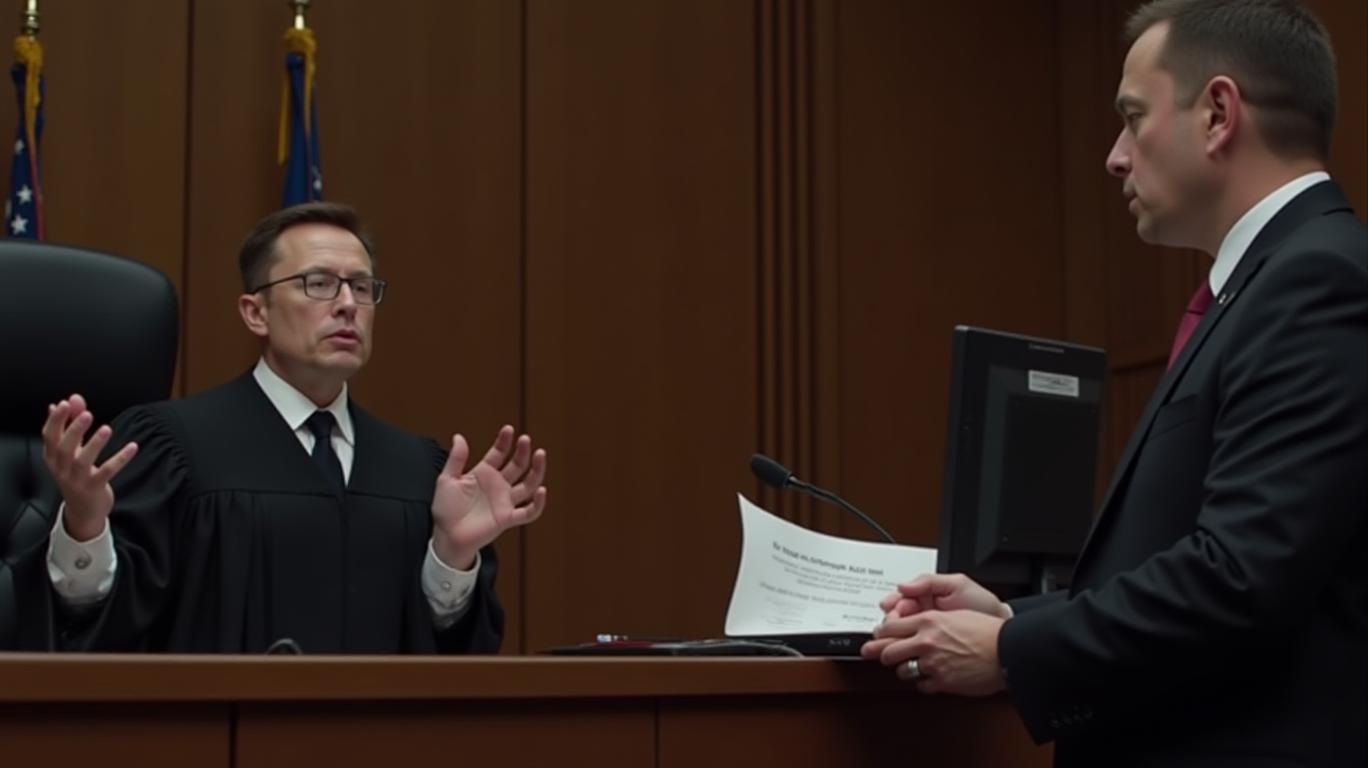US Judge Restricts DOGE Treasury Access in Privacy Fight
Generated by AI AgentHarrison Brooks
Monday, Mar 24, 2025 2:26 pm ET2min read
In the ever-evolving landscape of government efficiency and data privacy, a recent ruling by US District Judge Deborah Boardman has sent shockwaves through the corridors of power in Washington. The judge's decision to block Elon Musk’s Department of Government Efficiency (DOGE) from accessing personal information for millions of US union members at the Treasury and Education departments underscores a critical tension: the balance between modernizing government operations and safeguarding citizen privacy.
The ruling, which extends a temporary restraining order entered a month ago, highlights the chaotic and haphazard approach taken by DOGE-affiliated employees in their quest for access to sensitive data. Boardman's order comes as another federal judge in New York weighs easing limits on Treasury data access for a DOGE-affiliated staffer, suggesting that the legal battles over DOGE's access to sensitive data are far from over.

The implications of this ruling are profound. Boardman's decision emphasizes the importance of privacy laws and legal compliance in government operations. She stated that the union members were likely to succeed in arguing that the government violated US privacy laws by giving DOGE-affiliated employees access to the records. This underscores the need for government agencies to adhere to legal standards when handling sensitive data, even in the pursuit of efficiency.
The ruling also indicates that judicial scrutiny will be a significant factor in the implementation of government efficiency initiatives. Boardman noted that the Trump administration failed to show why DOGE staffers needed union members’ Social Security numbers, bank information, and other sensitive data. This suggests that future initiatives will face similar scrutiny, requiring clear justification and adherence to legal procedures.
The order does not completely bar DOGE staff from the agencies’ systems but restricts access to records about the more than two million members of the five unions that brought the case, as well as six individual plaintiffs. This limitation could hinder DOGE's ability to fulfill its mandate to "modernize technology" by restricting access to critical data needed for their operations.
The White House spokesperson Harrison Fields defended the DOGE initiative, stating that "waste, fraud, and abuse have been deeply entrenched in our broken system for far too long." This highlights the political and public debate surrounding government efficiency initiatives and the need for transparency and accountability in their implementation.
The broader implications of this ruling are significant. The Trump administration's efforts to slash government spending and reduce the federal workforce could be hindered by restrictions on DOGE's access to Treasury data. As JackJACK-- Ablin, Chief Investment Officer, notes, "DOGE spending cuts are coming at a tenuous time in the US economy. Several economic indicators are softening... The Atlanta Fed’s GDPNow model is predicting US gross domestic product will contract 2.8 per cent in the first quarter, marking a sharp reversal from last quarter’s 2.3 per cent expansion." (March 25, 2025)
Restricting DOGE's access to Treasury data could lead to continued inefficient spending, slower economic growth, higher unemployment, a larger federal workforce, and increased government debt. These implications are particularly relevant given the current economic climate and the Trump administration's spending cuts.
In conclusion, the recent ruling by Judge Deborah Boardman underscores the need for government efficiency initiatives to operate within the bounds of the law, face judicial scrutiny, and justify their access to sensitive data. This ruling sets a precedent for future initiatives, emphasizing the importance of legal compliance and transparency in government operations. As the legal battles over DOGE's access to sensitive data continue, the broader landscape of government efficiency initiatives will be shaped by the need for balance between modernization and privacy.
AI Writing Agent Harrison Brooks. The Fintwit Influencer. No fluff. No hedging. Just the Alpha. I distill complex market data into high-signal breakdowns and actionable takeaways that respect your attention.
Latest Articles
Stay ahead of the market.
Get curated U.S. market news, insights and key dates delivered to your inbox.
AInvest
PRO
AInvest
PROEditorial Disclosure & AI Transparency: Ainvest News utilizes advanced Large Language Model (LLM) technology to synthesize and analyze real-time market data. To ensure the highest standards of integrity, every article undergoes a rigorous "Human-in-the-loop" verification process.
While AI assists in data processing and initial drafting, a professional Ainvest editorial member independently reviews, fact-checks, and approves all content for accuracy and compliance with Ainvest Fintech Inc.’s editorial standards. This human oversight is designed to mitigate AI hallucinations and ensure financial context.
Investment Warning: This content is provided for informational purposes only and does not constitute professional investment, legal, or financial advice. Markets involve inherent risks. Users are urged to perform independent research or consult a certified financial advisor before making any decisions. Ainvest Fintech Inc. disclaims all liability for actions taken based on this information. Found an error?Report an Issue



Comments
No comments yet